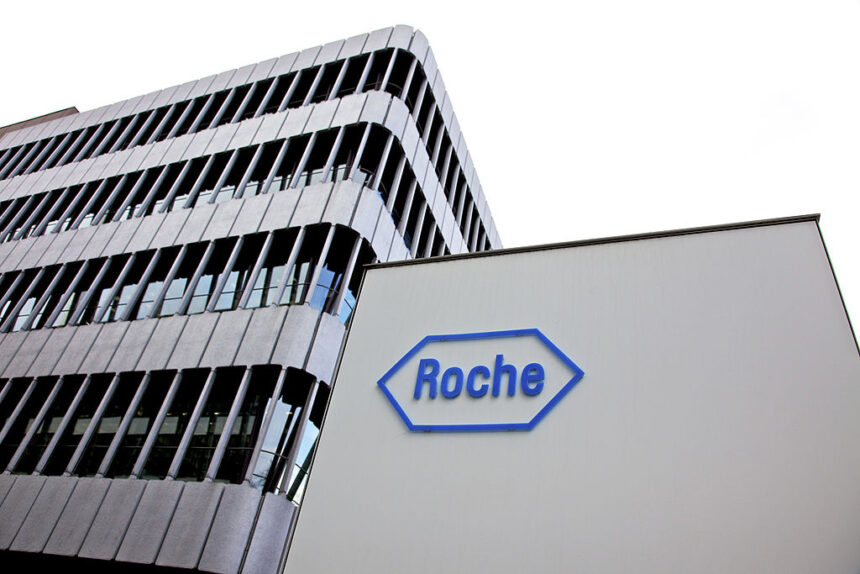The increasingly crowded GLP-1 treatment space is getting more interest from Big Pharma as Roche announced its multibillion dollar purchase of Carmot Therapeutics Monday morning.
The Swiss drugmaker is paying $2.7 billion upfront for Carmot and could spend another $400 million on the deal depending on additional milestones.
Through the deal, Roche is picking up three key incretin assets from Carmot, including CT-388, a Phase-2 ready, weekly-administered dual GLP-1/GIP receptor agonist for treating obesity in patients with and without type 2 diabetes. The company stated that CT-388 could have potential in the weight loss space and be primed for label expansion across additional indications.
Roche also nabbed CT-996, a once-daily oral, small molecule GLP-1 receptor agonist currently in Phase-1 trials for treating obesity in patients with and without type 2 diabetes, as well as CT-868, a Phase-2, once-daily injectable, dual GLP-1/GIP receptor agonist for treating type 1 diabetes patients with overweight or obesity.
In addition to the assets, Roche will get access to Carmot’s research and development portfolio of clinical and pre-clinical assets. The pharma giant will also have access to Carmot’s Chemotype Evolution discovery platform in metabolism.
“Obesity is a heterogeneous disease, which contributes to many other diseases that together comprise a significant health burden worldwide,” Roche CEO Thomas Schinecker said in a statement. “By combining Carmot’s portfolio with programs in our Pharmaceuticals pipeline and our Diagnostics expertise and portfolio of products across cardiovascular and metabolic diseases, we are aiming to improve the standard of care and positively impact patients’ lives.”
From an organizational perspective, Carmot employees will join Roche’s Pharmaceuticals Division. The deal is subject to customary closing conditions and is expected to close in Q1 2024.
Roche’s go-forward plan
Like other major drugmakers, Roche has been eyeing a post-COVID future as revenues from those treatments and products drop off with waning demand.
In the fall, Roche scooped up two novel RNA-targeted programs for Alzheimer’s disease and Huntington’s disease from Ionis Pharmaceuticals.
Roche also unveiled the Carmot deal less than two months after its latest earnings report indicated group sales growth of 7% at constant exchange rates, driven by brand treatments like eye disease drug Vabysmo, hemophilia treatment Hemlibra and multiple sclerosis treatment Ocrevus.
However, year-to-date, Roche’s diagnostics division saw sales fall by 18%.
In providing a business outlook for the rest of 2023, Roche said it expected a decline in group sales in the low single-digit range. Still, the company said it anticipates strong sales growth in the base business, excluding COVID sales declines.
Join the GLP-1 club
Given the unprecedented interest and demand for drugs targeting obesity and diabetes, especially for off-label weight loss, pharma manufacturers have expanded their presence in the space over the course of the year.
Seeking to emulate the success of ‘diabesity’ leaders Eli Lilly and Novo Nordisk, several other companies have doubled down their investments on weight loss drugs or purchased promising assets to get a foot in the door.
In early November, AstraZeneca bought the rights to a GLP-1 drug candidate from Eccogene for $185 million. Eccogene is also eligible to receive up to an additional $1.3 billion based on clinical, financial and regulatory milestones as well as tiered royalties tied to product net sales.
Meanwhile, Pfizer said last week that it will no longer pursue a twice-daily version of obesity drug danuglipron after it released topline Phase 2b results. Instead, the company said it will focus its efforts on its once-daily version of danuglipron, with new pharmacokinetic data expected in the first half of 2024.
For a December 2023 article on GLP-1 clinical results for Structure Therapeutics and Eli Lilly, click here.
For a January 2023 article on Roche’s purchase of Carmot Therapeutics, click here.







